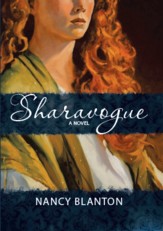Setting yourself apart for readers
/Part 9 in the "How I found my snow path to Dingle" series
Picking up where I left off on my series about my writing process for Sharavogue, today I am focusing on "What makes your book different from other books like it?" This is a question that might come during a media interview or from an anyone who is considering reading your book. To answer, I had to do my homework. When I selected the time period for my story, I searched for books in the Cromwellian years, the Interregnum, and on the bookends of that period during the reigns of Charles I and Charles II, the Restoration.
 Specifically during Cromwell's time there were very few historical novels – I found only two, in fact -- that take place in this turbulent period. I have since found several more but I think I am safe to say I have written of a time often overlooked by other authors. So, for readers like me who also like to learn about history as they read, it might be a good choice. Sharavogue (the title of my novel but also the name of the plantation where the protagonist was indentured) also illuminates what life was like for slaves and indentured servants on the sugar plantations of the 17th century. These plantations were a boon to England’s economy but could not have been profitable without slave labor.
Specifically during Cromwell's time there were very few historical novels – I found only two, in fact -- that take place in this turbulent period. I have since found several more but I think I am safe to say I have written of a time often overlooked by other authors. So, for readers like me who also like to learn about history as they read, it might be a good choice. Sharavogue (the title of my novel but also the name of the plantation where the protagonist was indentured) also illuminates what life was like for slaves and indentured servants on the sugar plantations of the 17th century. These plantations were a boon to England’s economy but could not have been profitable without slave labor.
An intriguing and distinguishing fact is that a colony of Irish planters developed on the island of Montserrat, and they too had to own slaves. The focus is on an Irish colony and perspective rather than an English one.
My style of writing is also quite different. I have used devices and structure to keep the book light, exciting and fast paced, but still packed with story, action and historical information -- just enough, and interwoven as best I could so the story did not become a history lesson. My page count is under 300, not the tome of some historical novels. This required quite a bit of brutal editing, but I knew the costs of printing would make a larger book a difficult sell for an unknown author. Some people like this style -- the book keeps them engaged so that they read it all the way through in a day or two. (One reader laughingly complained that it was my fault she did not get her Easter cooking done). But others have told me they would have liked more time for contemplation by the characters.
My hope was always that after finishing the book my readers would come away satisfied, entertained and informed. I also hoped to tell a good story about the Irish, who have held my imagination since childhood. A recent reviewer captured the gist of the story just as I had hoped:
"The Irish were no different, after all, than the English. Cruelty reigned. We were without justice, without recourse. We were without hope." Fifteen-year-old Elvy Burke only wants to live up to her destiny. As the daughter of a great warrior, she dreams of being a leader of her people and a defender of her country. But Oliver Cromwell and his brutal army change her destiny. After cursing Cromwell to his face, she flees her village determined to find a way to kill Cromwell and free her land. She thinks that only Cromwell is brutal, but she discovers the hard way as she becomes an indentured servant in the West Indies, that the English do not have a monopoly on brutality. Elvy learns to survive and she finds kindness in unexpected places. She uncovers her own strengths as she fights her way back to her home in Ireland.
via Amazon.com: Customer Reviews: Sharavogue : A Novel.
This will be my last post in this series, unless any readers have additional questions that I will be most happy to answer. I look forward to any comments or suggestions for future posts. Best wishes and happy writing!



